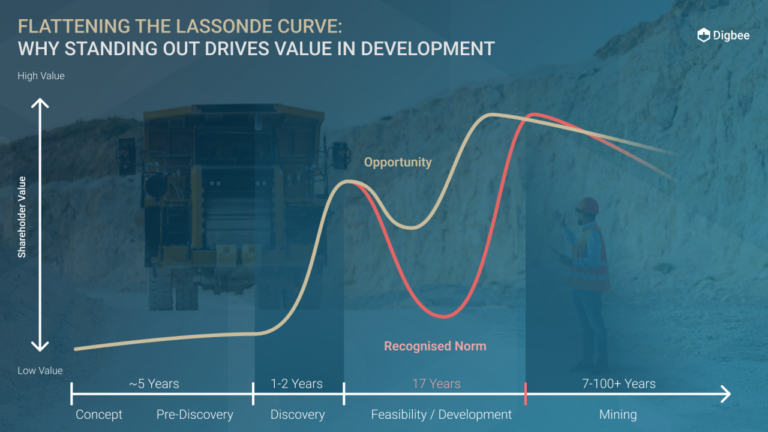Photos courtesy of: London Event Photography by Charlotte Knee
This is not about me, this is about you – the audience who are extremely passionate about this sector – as am I. And there’s no doubt that we’re excited by the future that lies ahead of us with the critical minerals and the gold sector really beginning to get going.
But I just want you to reflect for a second – this future is just that, its impact and its timing of this commodity cycle is beyond the control of any person. And yet, this is what every single one of us is holding onto for this sector. That is not healthy. The reality is, that we are living in a pool of capital that has been shrinking for at least a decade, if not longer. The cost of equity is the worst in the world. Recruitment of talent is almost impossible. Permitting is getting longer, and the pressure by communities for increasing engagement has in many parts of the world become the core determinant of permitting. Along with that, commodity consumers are requiring greater transparency on a wide range of topics that will influence the supply chain and ultimately the price of metals.

This spiral cycle of issues that continue to compound themselves is unstoppable at the moment. At the same time the sector remains trapped in the legacy of the last 30 years. This impacts every single one of us in this room and relying on a price cycle to change perception is holding the sector back from its positive role in society.
Ivan Glassberg mentioned at the FT Mining conference just before he retired from Glencore, that he was looking forward to leaving the mining sector, which had no currency, which had no valuation, and joining a sector where he could use equity as a currency.
…the sector remains trapped in the legacy of the last 30 years. This impacts every single one of us in this room and relying on a price cycle to change perception is holding the sector back from its positive role in society.
The sector’s growth and definition of success is entirely dependent on events outside of the control of anybody in this room or in this sector. The commodity cycle may or may not happen. I sincerely hope and believe it will. The timing of it, as we all probably know with regards to big events, is quite often different from our own expectations.
I think we’re missing the point. This is the most unloved, undervalued sector on the planet yet, the dichotomy is, it is critically the most important sector on the planet. It controls 45% of the world’s economy. It’s only $1 trillion worth of value. It takes a brave person to call a bottom but I believe we are indeed there after years and decades of perception and value decline.
We’re blinkered to the very opportunity that is in front of our face at the moment.
It won’t surprise you for me to say that the mining industry is intrinsically linked to sustainability. Think of it. No new project will get permitted without sustainability at the heart of that decision. Any ongoing operation has no social license without proving sustainability as part of it, and that’s getting stronger and stronger.
We’re blinkered to the very opportunity that is in front of our face at the moment.
Development finance from a reputable firm is impossible without proving sustainability is at the centre of strategy. Talent will not be attracted to this industry if we cannot prove to younger people that we are a responsible industry and we have a sustainable plan for the future. The world has changed. It is influenced and inspired by younger people. Decisions are happening much quicker. Industries are having to change at rapid speed. Consider the US car industry. A recent proposal is suggesting that by 2032, two thirds of the cars sold are going to have to be EVs. The change in the next 10 years will be enormous.

The mining industry is being left behind. Our only hope is on a cycle that is outside of our control; this is all it that is holding a sector together to enable it to carry on functioning normally. It’s not going to die and go away. There was an article on BBC the other day asking, “What would happen if you took away mining?”. It’s not going to happen. But imagine if we do carry on without changing our practices. Capital will become even more scarce. Look at the stream of capital that has redefined itself as “green” over the last two years. No portfolio manager will choose a mining company to be a published Top 10 holding.
The restricted access to quality talent is a major issue and has been for some time. Valuations of the sector are almost worthless at the moment. Participants have almost become “weathered” to the position they find themselves and have given up challenging a better outcome.
Consultants are going to have limited growth. Where’s the growth of service sectors going to come from if you’ve not got new investment going into new mining companies? The talent pool is going to be an endless train going the wrong way. Experienced consultants will diversify away from slow growth. Bankers – further shrinking of investment pools restricts new products. M&A I suspect will probably continue, but it’s going to be very competitive. Margins are going to decrease – there will be a limited pools of assets.
But sustainability is the calling card of this industry. It can rebuild trust. If it’s done properly, it can open doors and is opening doors to capital. It can raise confidence with local communities and bring them on as partners. That will lead to investment within these communities, which can have a positive impact – with local governments and federal governments encouraging mining rather than seeing it as a negative. I do believe we’re beginning to see that in Tanzania at the moment. Talent will obviously be attracted to a sector that is growing and is deemed to be an attractive place to go and work. Permitting will be smoother.
Thompson Reuters’ ESG data for the leading European mining companies places the industry in the top quartile. Look at the perception difference versus reality. Maybe it should not be a surprise. The sector’s been installing ESG programmes to some degree or another for 25 – 30 years.
These programs extensively cover topics throughout the ESG spectrum. Biodiversity, protecting water, investing in communities through education, housing and health as well as focus on GHG emission reduction and rehabilitation of existing and old mine sites. It is happening, but nobody’s listening and nobody’s listening because we’ve been communicating it wrong.
We are not able to get this message out. We’ve got to build trust. We’ve got to build trust by communicating more effectively the actions that we are taking. I went to PDAC at the beginning of March and listened to a gentleman called Daniel Davidson. He’s an MIT professor and is a Managing Director of Breakthrough Energy Technology, which, if you don’t know, is the Bill Gates and Jeff Bezoz fund investing in the mining sector.
We’ve got to build trust by communicating more effectively the actions that we are taking.
Historically, he’s been involved in the energy world and is a well-known VC. He said at the end of his panel, “Just imagine if you were to place a decent size mining company with no legacy, embracing ESG, and producing critical minerals. What would it be valued at?”. “Around about 14 to 16 times”, is what he said. That’s three times greater than what we’ve got at BHP, Rio Tinto and others. We are missing the point. We need to focus on what’s going on inside the sector, not on the things outside our control. Like with any major change and any major trend in the world, there are leaders. That change is happening right now. Some organizations have identified this as a differentiator. They’ve acted fast, they’ve got ahead of the game. They know what their narrative wants to be.
They want to get out their message that their project will be net zero, or that their approach to biodiversity is industry-leading, or that they’ve hired the best people or their commitment to society is good or that their community praises the company and therefore their host governments use them as an example to go forward and encourage investment not only within the region, but also within that country.
At Digbee we are recognizing this. We are seeing new leaders coming out within the industry who have embraced this. Look at the copper company, Foran, in Canada. They are not one of our customers, but they’ve embedded ESG as a central focus right from the beginning and look at the money they’ve got, the stickiness of their share price when things went difficult last year and the impact since then. First Tin recently announced an accelerated permitting process as a result of sustainability. Blackstone, the nickel company in Vietnam has improved their local engagement and commitment with their community. Camino, which is a Peruvian copper explorer, has improved access to capital through private equity. Marimaca has had government recognition with regards to their water solutions.
We need to focus on what’s going on inside the sector, not on the things outside our control.
My inspiration comes from 30 years of being in this industry. I’m hugely passionate about it but it’s hugely disappointing to see this industry has gone backwards, not forward. We’ve got an opportunity to win this battle. We’ve got an opportunity for everybody in this room to benefit from a sector that will 2x or 3x their valuation through improved perception. It’s not going to happen overnight, but we can start now. Seeing the measurable improvement of companies in any relevant area within ESG is really encouraging because we know that’s a communication benefit.
We’re seeing companies have better access to capital, to improved permitting, new management teams embracing ESG and having a different narrative. Communicating these issues and raising trust levels and confidence is happening. I’m confident that ESG orientated funds are going to get involved in this sector. They’re circling it. I talk to them. They know the importance of critical minerals to the world. They know the impact that the mining companies have with the local communities around these mine sites. Digbee’s success is intrinsically linked to the success of this sector. The demonstration of more sustainable operations will be a fundamental sign of an improvement of this sector, which goes for everybody in this room, everybody in this sector, and ultimately the communities and local governments that we live with.
The ultimate goal has got to be a change of perception in society, and if we can do that, we’ve got a change of perception and a change of valuation from this sector, which benefits all.
Thank you very much.

For more information visit: http://www.oxfordminingclub.com



